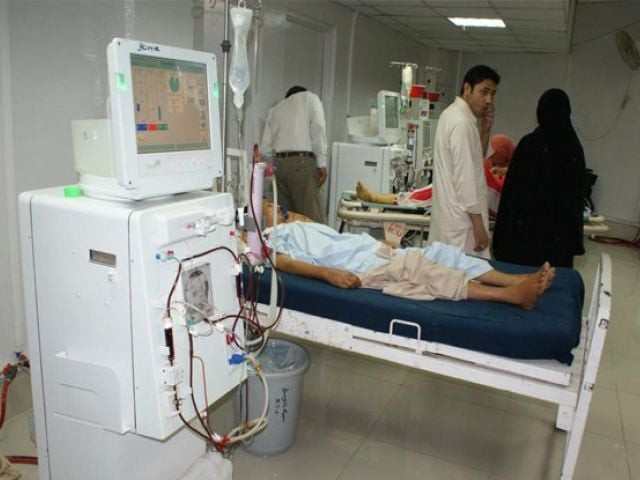Change mantra fails to improve health sector
Hospitals have been commercialised, concentrated in urban areas

Hospitals have been commercialised, concentrated in urban areas. PHOTO: ONLINE
Soon after the party seized the reins in Khyber-Pakhtunkhwa, special working groups and committees were constituted to streamline the health and education sectors and bring them at par with the needs and expectations of the people. The decision was taken on the directives of PTI Chairperson Imran Khan. However, the situation has gradually worsened.
The conditions of health and educational institutions in rural, urban and slum areas are particularly abysmal. Although the PTI-led government has made efforts to address these matters, it is difficult to dispute the fact that the education and health sectors have become rapidly commercialised due to the inefficiency of the government.
Rural-urban divide
Health services in K-P are concentrated in urban areas of the province. As a result, people from rural areas across K-P and the Federally Administered Tribal Areas have to travel to hospitals in Peshawar.
Hospitals in DI Khan, Bannu, Kohat, Mardan, Bannu and Swat are equipped with facilities. Nevertheless, residents of these areas prefer to visit Lady Reading Hospital in Peshawar. Similarly, people from Hazara Division prefer to visit Ayub Teaching Hospital in Abbottabad.
Ray of light
However, a telemedicine system developed by a welfare organisation called Child Life Foundation (CLF) could provide a ray of light if the provincial government chooses to capitalise on it.
This initiative aims to bring a revolution in the field of medical sciences and seeks to improve the quality of treatment.
It is currently being used in Jinnah Postgraduate Medical Centre and Civil Hospital in Karachi to treat infants in the paediatric emergency wards.

The affairs of all these centres are supervised through the telemedicine system from the organisation’s head office established in Gadoon Textiles Mills at Tabba Street Mohammad Ali Society, Karachi.
A team of experienced doctors and physicians are in constant contact with medical staff in various centres and wards at both Jinnah and Civil hospitals. A group of journalists from Peshawar also visited the city and witnessed functioning of the system.
Speaking to The Express Tribune, CLF CEO Dr Ahson Rabbani said, “We have established 18 first aid or emergency collection points in different areas of Karachi. Through these centres, infants are shifted to Jinnah and Civil hospitals after provision of first aid and emergency care.”
He added “CLF started functioning in emergency wards in Jinnah and Civil hospitals in 2010.”
According to Rabbani, around 0.7 million children have been provided treatment in these centres.
“These infants not only belong to Karachi,” he said. “They are from rural Sindh and adjoining areas of Balochistan. The medical expense of each infant is Rs700 and is paid by the organisation. There is no need to register or pay fees as all facilities and medicines are provided free.”
He maintained CLF has offered these services to the K-P government and is ready to establish the system and work with the provincial government to streamline the health sector. However, he added the K-P government has yet to respond to the request.
Published in The Express Tribune, April 25th, 2016.













COMMENTS
Comments are moderated and generally will be posted if they are on-topic and not abusive.
For more information, please see our Comments FAQ